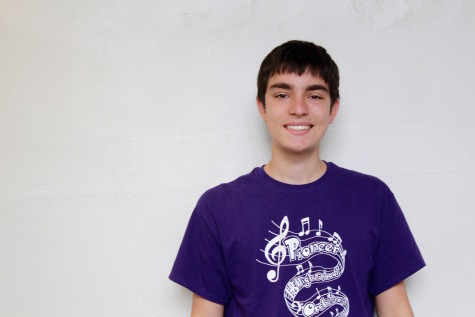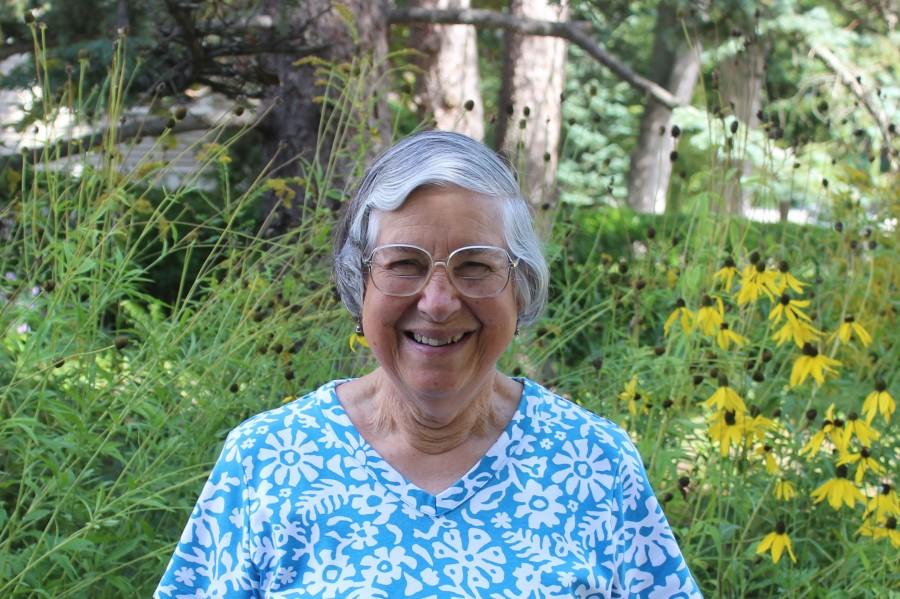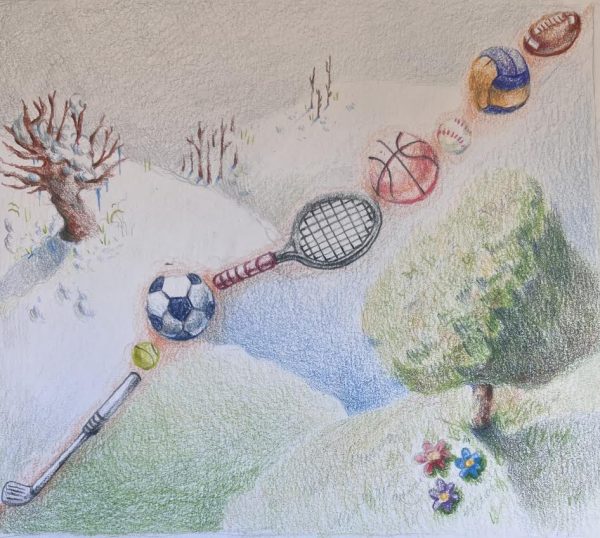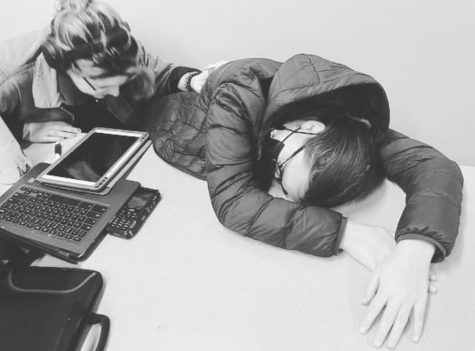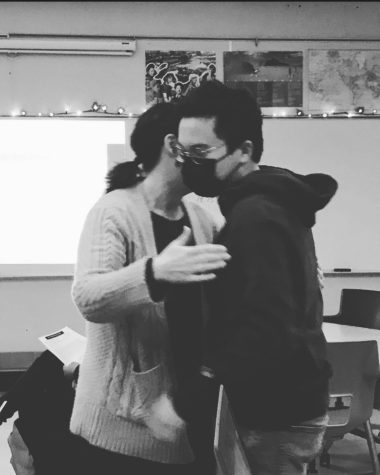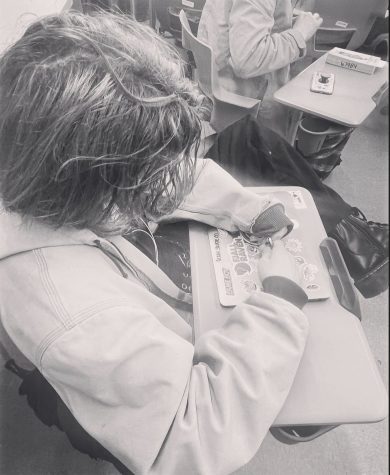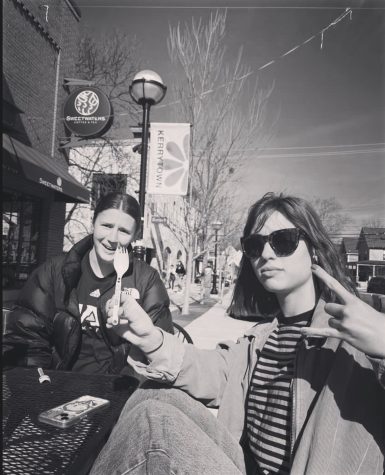Shaping a Life in Michigan
Ellie Shappirio has lived in the same house on the Old West Side of Ann Arbor for fifty-five years; when she bought her house, the spruce that towers over her yard was the size of a Christmas tree. This consistency, however, has hardly limited her. In fact, Ellie has kept herself busy with a variety of passions. “I spent most of my life becoming active in things on the first wave,” said Ellie. “You know, the wave goes up, and I get involved.” At age 83, with a great-grandson on the way, Ellie can be found making pottery, observing wildlife, tending to her garden, or going kayaking and cross-country skiing.
A born and raised Michigander, Ellie (née Elvera Bamber) grew up on a 120-acre dairy farm northeast of Howell. Instead of suburban sprawl, this region of southeast Michigan was dominated by farms and nature. The farm is still in her family, and has been so for 124 years. Ellie’s main form of amusement was to explore the countryside with her younger sisters. For eight years, Ellie attended a one-room schoolhouse. “There were never more than twenty-one children in the school, all ages,” she said. “My class happened to have four people, which was remarkable.” She hoped to grow up to become a lab researcher.
Ellie attended Howell High School, making the leap from four students in her grade to eighty-three. She lived six miles from the high school, but had no way of getting back to the farm every day. “There were no school buses when I started high school, so I had to board with someone in Howell during the week,” she explained. Finally, in the middle of high school, she was able to hitch a ride from a teacher who lived in the country.
After high school, Ellie attended the University of Michigan to study botany. She worked her way through school by doing botanical drawings for two professors, and by working as a dormitory waitress. Soon after graduating, Ellie married David Shappirio. David was still finishing his degree at Harvard University, so Ellie moved to Cambridge, Massachusetts. She worked at the Massachusetts General Hospital for two years, doing dermatology research. It was the first time Ellie had lived outside of Michigan, but she didn’t find it daunting. “I’ve just taken advantage of wherever I was, and whatever it was like,” she said, adding that she found the urban environment “more exciting.”
David was offered one post-doctoral fellowship at Cambridge University of England, and another at University of Leuven of Belgium. He and Ellie went abroad for two years, and Ellie assisted David with his research, and took up a new hobby: “While we were in England and Belgium, we bought a VW Beetle, and every weekend, we went out to study the architecture of England,” she said. She observed neolithic mining sites in Britain, entered the caves of Lascaux in Southern France, and even took a trip through several countries of central Europe to visit archaeological sites. “It was a fantastic two years,” she summarized.
After their two years in Europe, David accepted a job offer at the University of Michigan. Ellie returned to Michigan after a four year hiatus, and has lived in Ann Arbor ever since. She took a job in a botanical research laboratory in a former infectious disease hospital. Ellie did lab research for four or five years, but did not pursue it further. “Especially in certain areas, women were not paid much at all,” she said. “Because of course, they had husbands, they didn’t need to be paid well.”
Ellie quickly found a new occupation. “I was also interested in pottery, and I became a potter,” she said. “I wasn’t employed, but I sold my pottery.” Ellie became interested in drawing as a teenager, and took lessons from an uncle who was an artist. She discovered pottery in college, and at the suggestion of a professor’s wife, took a course with the Potters’ Guild. She eventually became a member, and then the treasurer, and still helps run the Potters’ Guild.
Ellie adopted a daughter, Susan, in 1964. Three years later, she adopted a son, Mark. For the next two decades, Ellie raised her kids, worked as a potter, and helped David with his research on insects. One of her tasks was to find the food plants for the insects he and his graduate students were studying. “I was the consultant botanist for that,” she said.
In 1984, the Potters’ Guild learned that a well-known local potter, JT Abernathy, was selling his pottery shop in Nickel’s Arcade. The Potters’ Guild, who had helped Abernathy establish himself as a local potter in the 1950s, decided to buy his shop. Ellie helped run the store for almost thirty years; they closed in August 2014. “Yes, I can’t believe it,” she said. “I’ve been part owner of a retail shop in downtown Ann Arbor for thirty years!”
Still an active potter, “useful things” are Ellie’s favorite pieces to make. “Mugs, bowls, plates, vases,” she listed. “I’ve made a few decorative things too, but mostly I haven’t. I’ve made sets of dishes for customers a few times.” Ellie does more than throw and decorate her pieces. “We formulate our own clay,” she said. “And we mix our own glazes, we don’t buy pre-mixed glazes. So I actually use my chemistry training!”
In addition to pottery, Ellie keeps herself busy with a broad variety of outdoor interests. Ellie is an avid birder; the natural surroundings of her childhood fostered a lifelong interest in the natural world. “I was just aware, and people were just aware of the animals, and the birds, and the creatures around you. Whatever was there, you paid attention to,” she said. Ellie observed dozens of bird species at her farm, including several that are often quite difficult to find.
As a child, Ellie paid a lot of attention to reptiles and amphibians. “I was especially interested in the frogs, and the turtles, and the snakes,” she said. After her freshman year of college, she became a camp counselor at a girl scout camp in Waterloo State Recreation Area, as the natural history counselor. While Ellie had always paid attention to birds, she began actively searching for them in the 1970s. “We became aware that people actually made lists of birds they saw, and things like that,” she said. Now, Ellie is an active member and the treasurer of the Washtenaw Audubon Society.
Cross-country skiing became popular in the United States in the 1960s. Quickly interested, Ellie interviewed some neighbors about what it was like. “So the whole family started skiing over here in the churchyard, and in the [Eberwhite] Woods,” she said. “And I did a lot of it. A lot of it. All of it in Michigan. And I still do,” she added.
About sixteen years after becoming an avid skier, Ellie discovered kayaking, which was also becoming more popular at the time. “I was very interested in having some kind of boat that I could put on the car by myself,” she said. She bought herself a kayak, and it has been a passion of hers since then. Ellie estimates she has introduced as many as 50 people to the same lightweight kayak brand — Poke Boat.
Although these hobbies would be enough to keep one busy, Ellie participates in still more outdoor recreational activities. She is a gardener and a camper. “I have a kind of wild garden look in my yard. Not the groomed ones,” said Ellie. She has also worked in Project Grow gardens. In years past, Ellie spent time with her family hiking in the West, visiting places such as Rocky Mountain National Park, Mount Rainier, and the Canadian Rockies.
Living in Michigan for almost eighty years has given Ellie the opportunity to observe changes over time. “I can’t say that the roads are better!” she laughed. Ellie has noticed “the relentless building of housing developments, and the barns disappearing” in southeastern Michigan. She has seen technological changes – mostly for the better, in her opinion. “The computer is the best toy ever invented,” she said. “I wouldn’t think of not being involved with it.”
Additionally, Ellie has noticed changes in the natural history of Michigan. Some birds that she grew up with are disappearing from the state. On the other hand, animals such as cardinals, titmice, and coyotes were not a part of the Michigan fauna when she was growing up, and there were far fewer deer.
Despite any negative changes she has seen, Ellie is happy to be a Michigander. “I love living in Ann Arbor,” she said. “I have had a really good time.”
